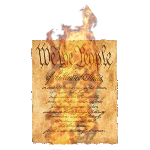
The United States has stronger restrictions on State interference in personal speech than any other country, so in that sense the 1st Amendment is doing pretty well; it’s doing a good-but-not-great job preventing press interference and an OK-but-not-good job protecting the freedom of association.
And with the standing and sovereign immunity doctrines it’s basically ignoring the bit about “petition the Government for a redress of grievances”.
But it’s doing an outright terrible job at dealing with religion.
Part of this is that it’s just badly written: while its clear from the written record that its authors at the time understood it to demand a full “separation of Church and State” (a phrase which comes from commentary on it, not from the Amendment itself), it really doesn’t come across to a general reader as that.
And historically, legislators and the judiciary have been blatantly unable to identify which cultural practices count as “religion” and which can be thought of as general cultural background.
So we need to be more explicit.
Most importantly, we need it to prevent the imposition of cultural practices and values rather than ‘religion’.
The limitation to religion has allowed the State to effectively bypass this rule entirely.
Seriously, there is no reasonable way sticking “In God We Trust” on the money isn’t a State endorsement of a particular religious viewpoint but Congress and the Supreme Court found enough wiggle room to let it happen. The same with “under God” in the Pledge of Allegience.
That is … just not right.
Now, I am not a trained lawyer, so I’m not going to suggest any exact wording, but we need something like this:
- The State may not require or forbid any thing except to prevent a specific and describable harm to a person or group of people or as necessary for the existence and functioning of the State.
- The State may require licensing for things it cannot forbid, but only to the extent of teaching and testing competence.
- The State may not in any way attempt to influence public opinion.
This is a very expansive prohibition, much more so than the current “make no law respecting an establishment of religion”, but that’s necessary to address the attempts to use the State’s power to forbid or impose specific cultural practices outside of religion, and the way religious laws have masqueraded as non-religious cultural practices.
- Archive: Collective Patronage - 2025-08-21
- A Texas Homecoming: Democrats Meet, Ignore, Real World - 2025-08-20
- Archive: Analysis of U.S. Military Spending - 2025-08-19
